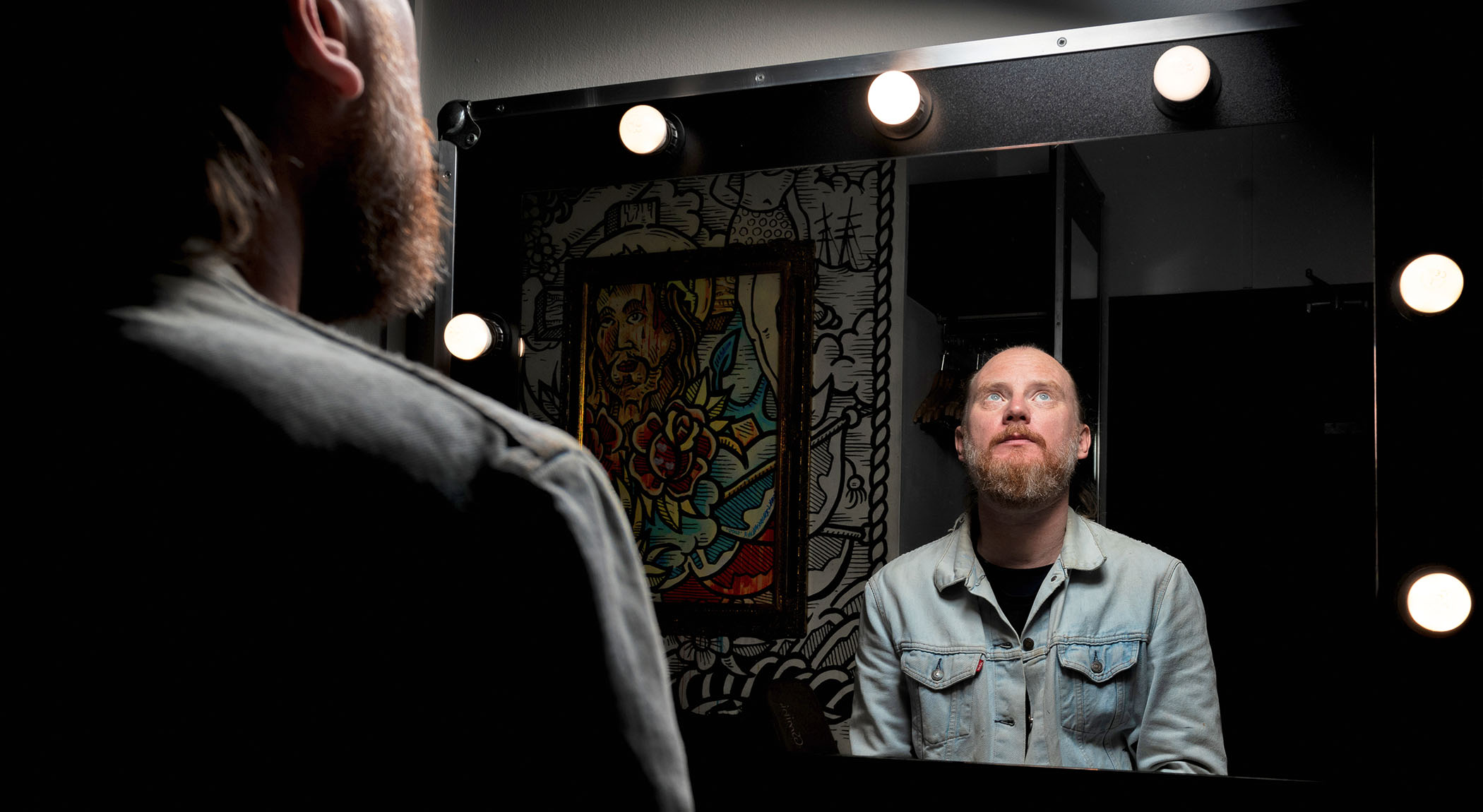“I was a Brian May obsessive. I had the Star Licks video and had learned it all by the time I was 14”: Hooked on “bombastic lead rock guitar” before catching the songwriting bug, Seb Wesson is on a search for songs with meaning
Wesson's full-length solo debut was made in collaboration with his Martin D-28 and a ’68 Fender Pro Reverb amp rescued from the trash outside a London guitar shop, and features 10 tracks with a story to tell

Hertfordshire-based Seb Wesson’s new Man From The Moon album is his first full-length solo release, following his 2017 Tigers EP.
Cutting his teeth in indie-rock band Munkster, Wesson started playing solo and session music after the group’s demise, as well as providing lead guitar licks for alternative-rock outfit Captain. It’s a busy musical life, and there’s really one man to thank.
“I started playing when I was seven or eight and I was really into Queen,” Wesson begins. “I had their greatest hits on vinyl and cassette, and I was a Brian May obsessive. I had the Star Licks video and had learned it all by the time I was 14.”
Moving Forward
When listening to Wesson’s solo music now, the Queen link seems surprising.
“I got into songwriting, so the incredibly bombastic lead rock guitar first got me hooked and then I got into songwriters,” he explains. “Dire Straits followed Queen – Mark Knopfler was another big influence – then there was James Taylor, Damien Rice, and Elliott Smith. I got into appreciating well-written songs and began attempting to do similar things.
“I wrote a bit in the band [Munkster], but it was more of a four-way thing and lyrics were more of a collaborative effort in a way. So after that I started trying to get good at writing songs as a one-man setup.”
Creative Flow

After Munkster split, Wesson kept busy playing in a function band, writing some solo songs, and also working with R&B singer Lemar, with whom he toured and made two albums as a session player.
Get The Pick Newsletter
All the latest guitar news, interviews, lessons, reviews, deals and more, direct to your inbox!
“Although session stuff can be creative, I wasn’t writing much around then,” he says. “But by the time I quit the function band, the creative force came knocking and I started working on songs again and did the EP [Tigers] in 2017.
“It was a great exercise and it opened the floodgates. It was that simple thing of coming up with a set of chords for a verse and a middle eight and then creating a melody, recording it, and enjoying what you hear. That was the shift.”
Simple Pleasures
Wesson’s debut album is a confident-sounding 10-track record, arranged with a lightness of touch and a keen ear for melody and space.
“Everything was written and recorded on my Martin D-28,” he says. “That was a big part of it because it’s my dream acoustic and the songs come out of that. The other key thing was simple techniques – all of it was tracked on a Shure SM7B [mic].
“I used an old ’68 Fender Pro Reverb amp [rescued from the trash outside a London guitar shop!] panned the acoustics, and quadruple-tracked the vocals. I wanted a timeless, organic-sounding record. There wasn’t going to be any fancy modern stuff.”
Mark My Words
The album’s sound never feels overstuffed, which is a discerning move that gives Wesson’s writing room to breathe.
“When I was doing my band stuff, lyrics were such an afterthought,” he tells us. “As long as it had a great set of chords and a hooky element, I could almost fill in the lyrics with some nonsense. Now, I think a big part of being good at writing is having something interesting to say; it makes you more enthusiastic when there’s a topic.
“Every song on the album has a core subject: The Wave is about a Japanese tsunami, and The Festival is about a time I forgot to go and see Elliott Smith – I was too young and stupid and I really regretted it afterwards…”
Building Blocks: Seb Wesson’s journey as a guitarist saw him trying his hand at lutherie
Wesson’s earlier instruments were slightly less flash than his “dream” Martin D-28, but then, he did make them himself…
“I’ve still got the first one,” he laughs. “It’s a bit ramshackle – we didn’t use moulds, just got the shape in and cinched it with string and let it set after hand-steaming it. I wouldn’t describe it as a guitar I would use, but it was a great experiment.
“I built some Selmer-style guitars afterwards with a mate of mine and they were much better. They were called W&W, and there’s still probably four or five out there in the wild…”
- The Man From the Moon is out now.
Glenn Kimpton is a freelance writer based in the west of England. His interest in English folk music came through players like Chris Wood and Martin Carthy, who also steered him towards alternate guitar tunings. From there, the solo acoustic instrumental genre, sometimes called American Primitive, became more important, with guitarists like Jack Rose, Glenn Jones and Robbie Basho eventually giving way to more contemporary players like William Tyler and Nick Jonah Davis. Most recently, Glenn has focused on a more improvised and experimental side to solo acoustic playing, both through his writing and his own music, with players like Bill Orcutt and Tashi Dorji being particularly significant.
“I heard the Money solo and thought, ‘This is amazing!’ So I sent David a telegram saying, ‘Remember me? I'm in a band now called Roxy Music’”: Phil Manzanera on his friendship with David Gilmour, and the key to the Pink Floyd man's unmistakable tone
“It’s really quite genius, but also hard to learn – it sounds insane, but sometimes the easiest songs still get me nervous”: Kiki Wong reveals the Smashing Pumpkins song she had the most trouble with














